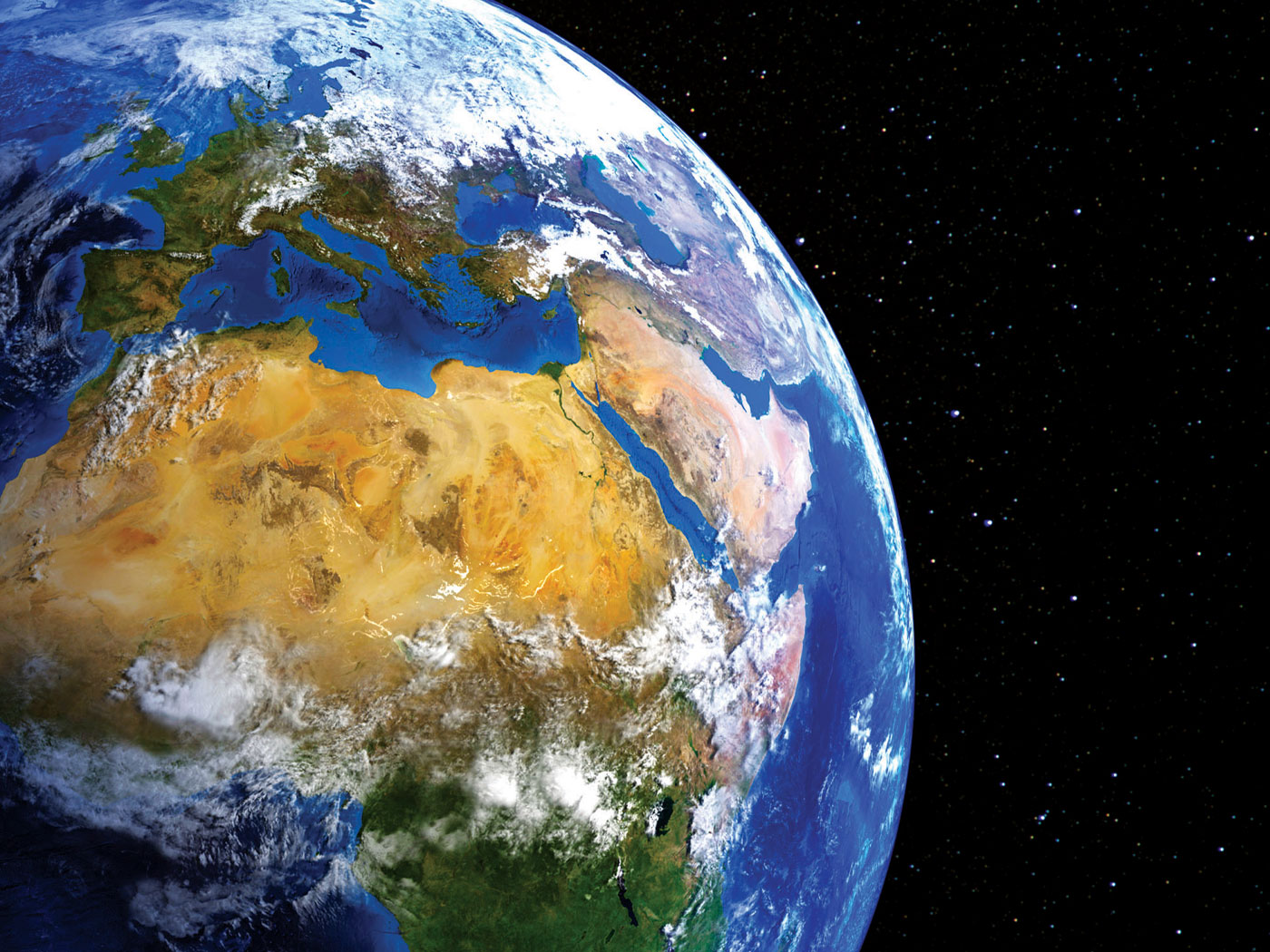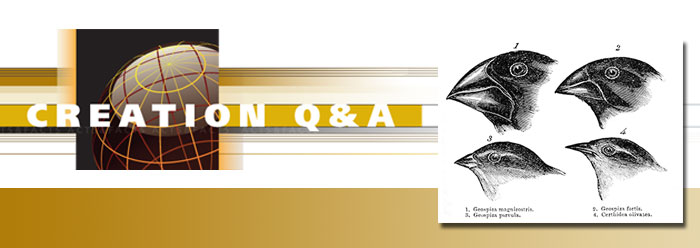For God so loved the world, that he gave his only begotten Son, that whosoever believeth in him should not perish, but have everlasting life. ( John 3:16 )
This poignant passage has become one of the most well-known of all Bible verses in the English-speaking world. Via national television, the reference routinely appears on placards in demonstrations and banners in stadium bleachers and in the eye-black of famous athletes. But sometimes, as the adage says, “familiarity breeds contempt.” Perhaps a quick focus on this marvelous promise would encourage you and your family.
The key to this verse is the little adverb “so.” The end product—everlasting life—and the means, His only begotten Son, are absolutely important. But it is the quality of God’s love that is stressed. It is how God loved us that governs this promise.
Those familiar with the passage will recall that this is part of the conversation between the Lord Jesus and Nicodemus, one of the scholars and leaders of Israel. Nicodemus had just asked about the second “birth” process that made one part of the Kingdom of God. In His explanation, Jesus brought Nicodemus back to the time of Moses when those who had been bitten by deadly serpents were promised life if they looked at a brass serpent lifted up on a pole (Numbers 21:5-9). In the same manner, Jesus said He would become the one “lifted up” so that anyone who “believed” in Him would not die but have life “into the ages.”
Jesus explains to Nicodemus, “For”—and here is the connection to the application — “God so loved the world, that–” His Son became the payment that made possible what was always in our Creator’s heart to do for us. Because God’s love was so fashioned and part of His very nature, He made possible the gift of His “only begotten son” and the priceless grant of eternal life.
This love and the gift that was fulfilled in history was “foreordained before the foundation of the world” (1 Peter 1:20). This was no emotional reaction on God’s part. This was a unilateral love shaped by the character and design of the Triune Godhead. To say that “God is love” is to state the eternal reality of God’s very nature. To say that “God is holy” is to express the unfathomable, unchangeable essence of His character. Exemplified by the gift of the Lord Jesus, this “love” was “so” demanding that the holy God must give the Son in order to exercise His love and maintain His unchangeable righteousness (Romans 3:26).
This love was given and foreordained “while we were yet sinners” (Romans 5:8). You and I are birthed in sin, live lives immersed in sin, and cannot possibly understand the agony of the holy Son of God who prayed in the garden of Gethsemane, “O my Father, if it be possible, let this cup pass from me” (Matthew 26:39). Surely the cruel torture of the cross would have frightened any human heart, but the groaning that Jesus uttered was from the profound understanding of becoming “sin for us” (2 Corinthians 5:21). The atrocities of history, the horrible thoughts and actions of every evil deed were plastered and infused in His sinless body and soul. No wonder Jesus cried out on the cross, “My God, my God, why hast thou forsaken me!” (Mark 15:34).
These extreme measures were taken because God “so loved” the world.
We rightly think of God’s love in terms of what He has provided for us through the substitutionary sacrifice of the Lord Jesus. Concrete confirmation of that love is demonstrated by Jesus’ resurrection on the first day of the week. Were it not for the clear expression through the life and work of Jesus Christ, we would be hard pressed to “see” God’s love. Indeed, “We love him because he first loved us” (1 John 4:19). Yet, there are unique aspects of God’s love expressed to us in salvation.
For those who respond with repentance and belief to the convicting ministry of the Holy Spirit, the immediate act of God’s love is to birth a “new man” who “is created in righteousness and true holiness” (Ephesians 4:24). No emotive feeling of “sweet love” is here. This is the personal act of almighty God that creates “a new creature: old things are passed away; behold, all things are become new” (2 Corinthians 5:17).
Once implemented, the immutability of God makes it impossible for God’s love to ever change. The new eternal spirit of the twice-born is forever secured.
For I am persuaded, that neither death, nor life, nor angels, nor principalities, nor powers, nor things present, nor things to come, Nor height, nor depth, nor any other creature, shall be able to separate us from the love of God, which is in Christ Jesus our Lord. (Romans 8:38-39)
No creature, no circumstance, no contrivance can ever destroy God’s love. Yet this is only part of the little “so” that defines the love of God.
God’s love comes with the faith to maintain the relationship on our human side (Ephesians 6:23). We have precious assurance that the grace extended in the salvation event is not a “work” that can be accomplished by human effort. It is delivered by “faith; and that not of yourselves: it is the gift of God” (Ephesians 2:8). Even this faith to believe is a necessary gift because “No man can come to me, except the Father which hath sent me draw him” (John 6:44) and because “the natural man receiveth not the things of the Spirit of God” (1 Corinthians 2:14). Since we are “dead in trespasses and sins” (Ephesians 2:1), it is then absolutely necessary that our great Creator God makes possible the supernatural change from a “dead” unbelieving heart to an eternally living spirit, made alive by the grace of God’s love administered through faith in God's gift.
And if saving faith is God’s gift at salvation, God’s kind of love would ensure that our weak human wills would be shored up by an ongoing faith to “endure unto the end” (see Matthew 24:12-13).
Since God’s unchanging love is great (Ephesians 2:4), it also comes with kindness (Titus 3:4) and with peace (2 Corinthians 13:11). Jesus spoke of His peace as being distinctly different from the temporary and unstable peace given by the world (John 14:27). God’s love is found and continually experienced in relationship with Him. It is the living tie between the vine and His branches. The Heavenly Father and His beloved Son exemplify that kind of love (John 15:9). And this holy love “so” loved us that we are now entwined with it.
Perhaps the sum of all the aspects of God’s kind of love is this: “Behold, what manner of love the Father hath bestowed upon us, that we should be called the sons of God” (1 John 3:1). Stunning! Our sin-cursed lives are transformed, and we become sons and daughters of the King of kings and Lord of lords. We who have fallen into the arms of God’s love will become “joint heirs” with this King in the “new heavens and a new earth” (2 Peter 3:13).
“Wherefore comfort one another with these words” (1 Thessalonians 4:18). Even before the foundation of the world, God “so” loved us, that while we were dead in our sins, He sent His “only begotten son” at the fullness of time to redeem us from the curse of the law. Payment was finished on the cross and demonstratively accepted by the resurrection. “Whosoever” would believe this gracious love-act would not be destroyed but be made the very holiness of the Creator Himself! The wonder of His love is bestowed upon us through Christ. One day—perhaps soon—we who have been made the sons of God will stand together in grand celebration as our brother, the Lord Jesus, accepts His eternal Kingdom. What a marvelous day that will be for those of us who rest in Him.
* Dr. Morris is Chief Executive Officer of the Institute for Creation Research.
Cite this article: Morris III, H. 2013. The Wonder of His Love. Acts & Facts. 42 (2): 5-7.






















